Legal Writing: Analysis of Involuntary Manslaughter Case in US Law
VerifiedAdded on 2023/05/31
|5
|842
|417
Case Study
AI Summary
This legal writing assignment analyzes a case of involuntary manslaughter, focusing on the criminal liability of Prem for the death of Vijay. The assignment identifies the issue, which revolves around determining Prem's responsibility. It then discusses relevant rules, including the definition of involuntary manslaughter under 18 U.S. Code § 1112, distinguishing it from voluntary manslaughter and highlighting the role of recklessness and negligence. The analysis references key legal precedents such as United States v. Gomez-Leon, United States v. Dominguez-Ochoa, and State v. Butler to illustrate the legal principles. Applying these rules to the case, the assignment argues that Prem's negligent act of firing a rifle without proper care directly caused Vijay's death, constituting involuntary manslaughter. The assignment concludes that Prem should be held criminally liable, potentially facing imprisonment or fines under the 18 U.S. Code. The document is well-structured, providing a clear issue, relevant legal rules, application to the facts, and a conclusion, supported by legal citations.
1 out of 5
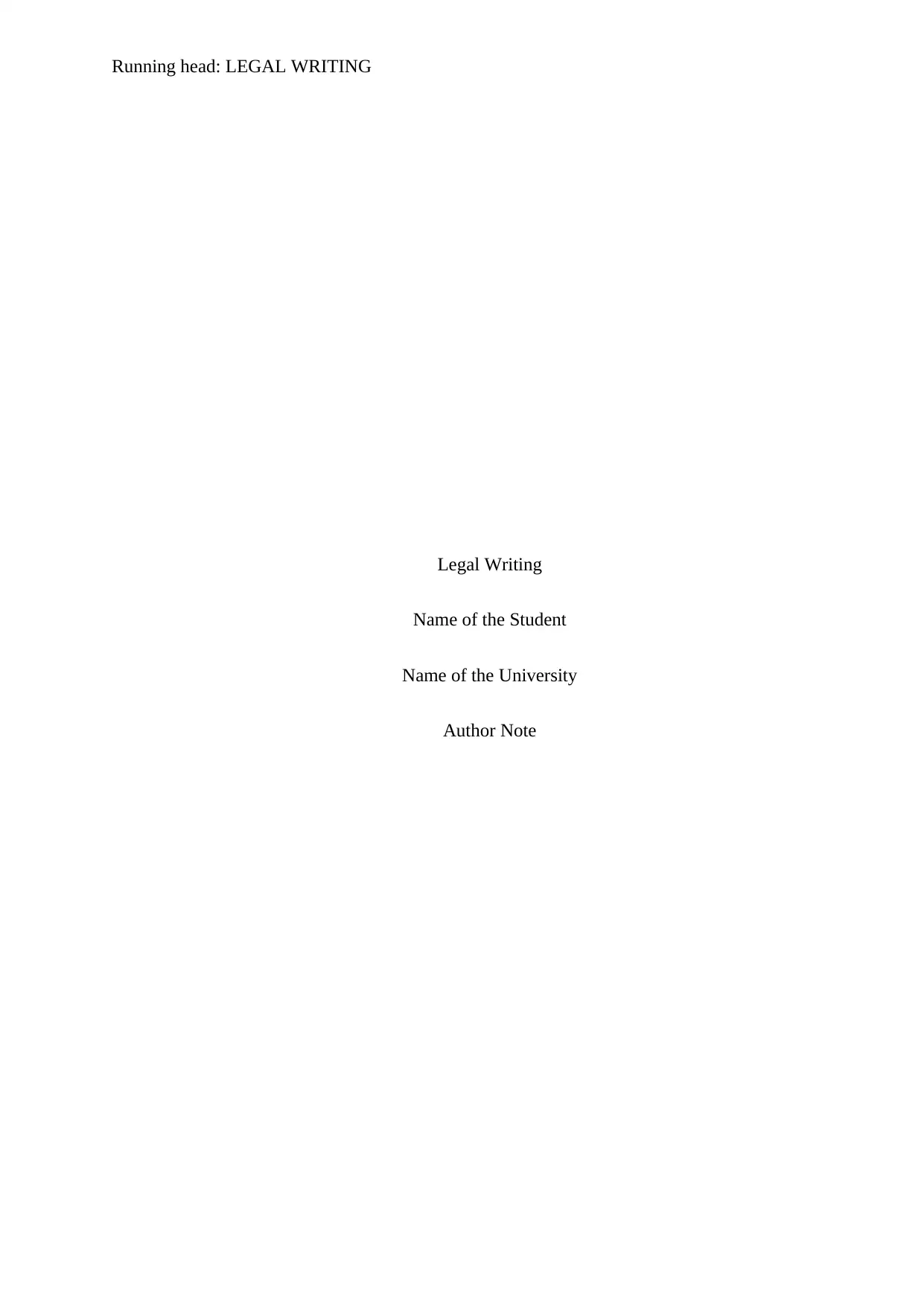
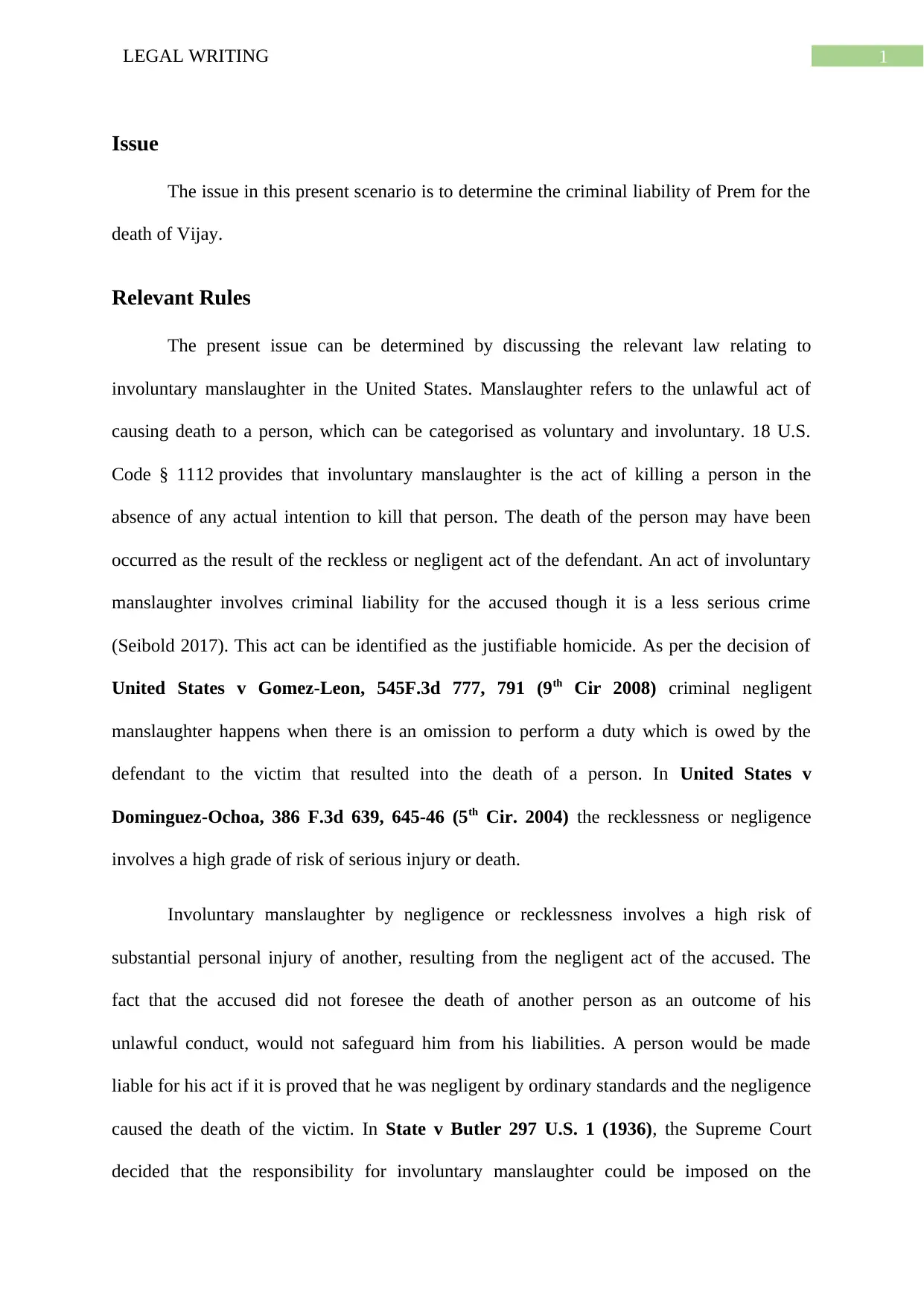
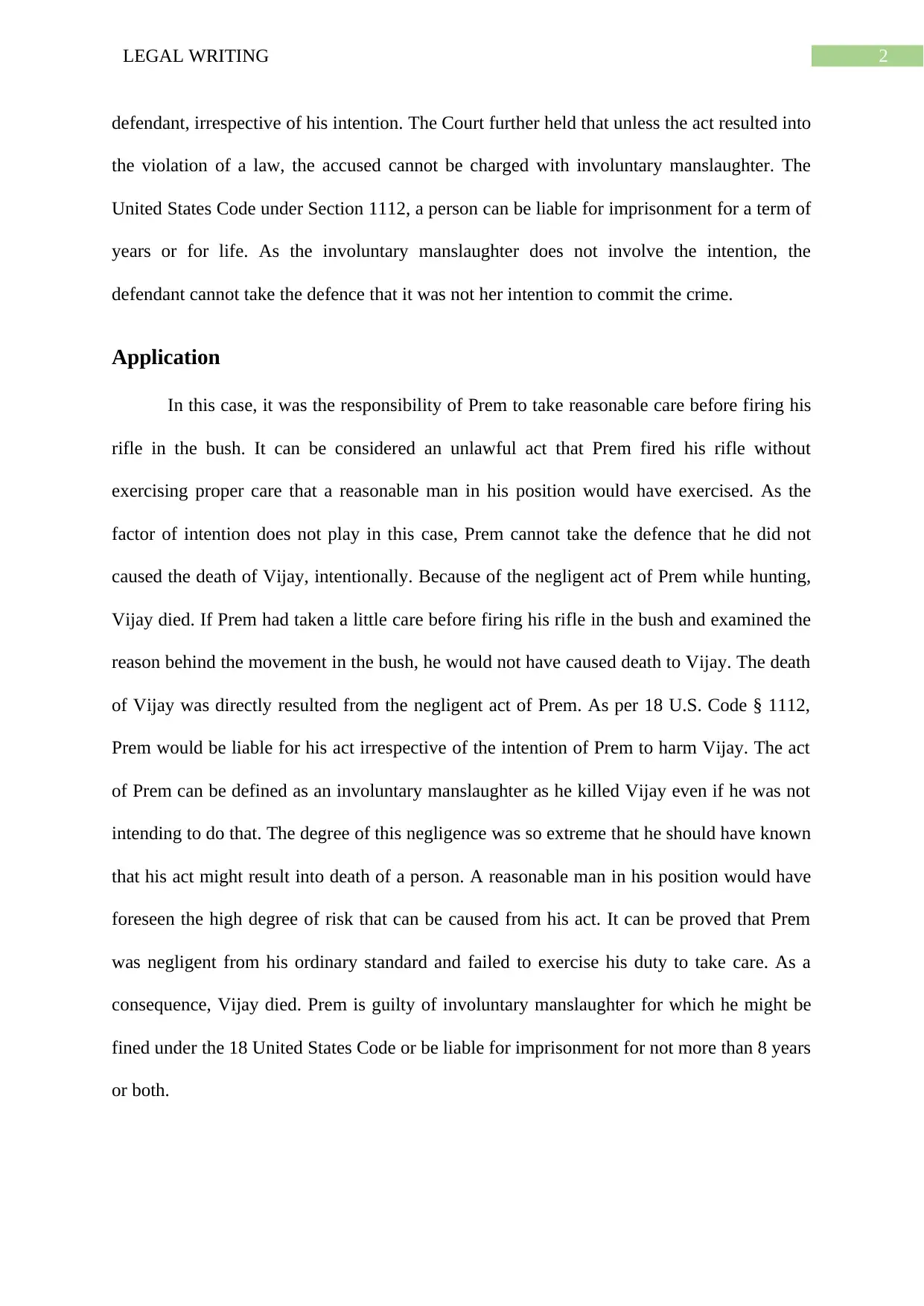

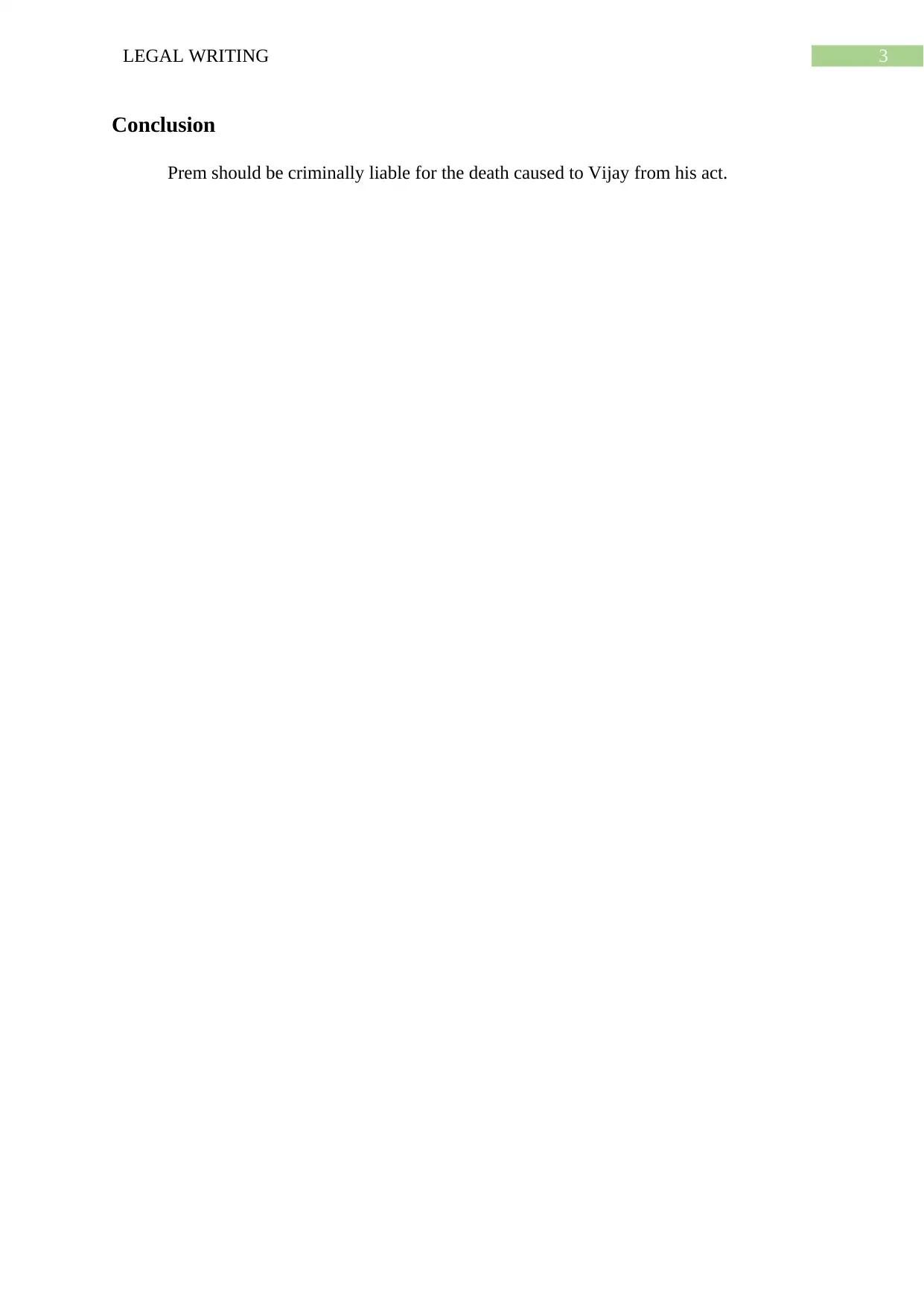
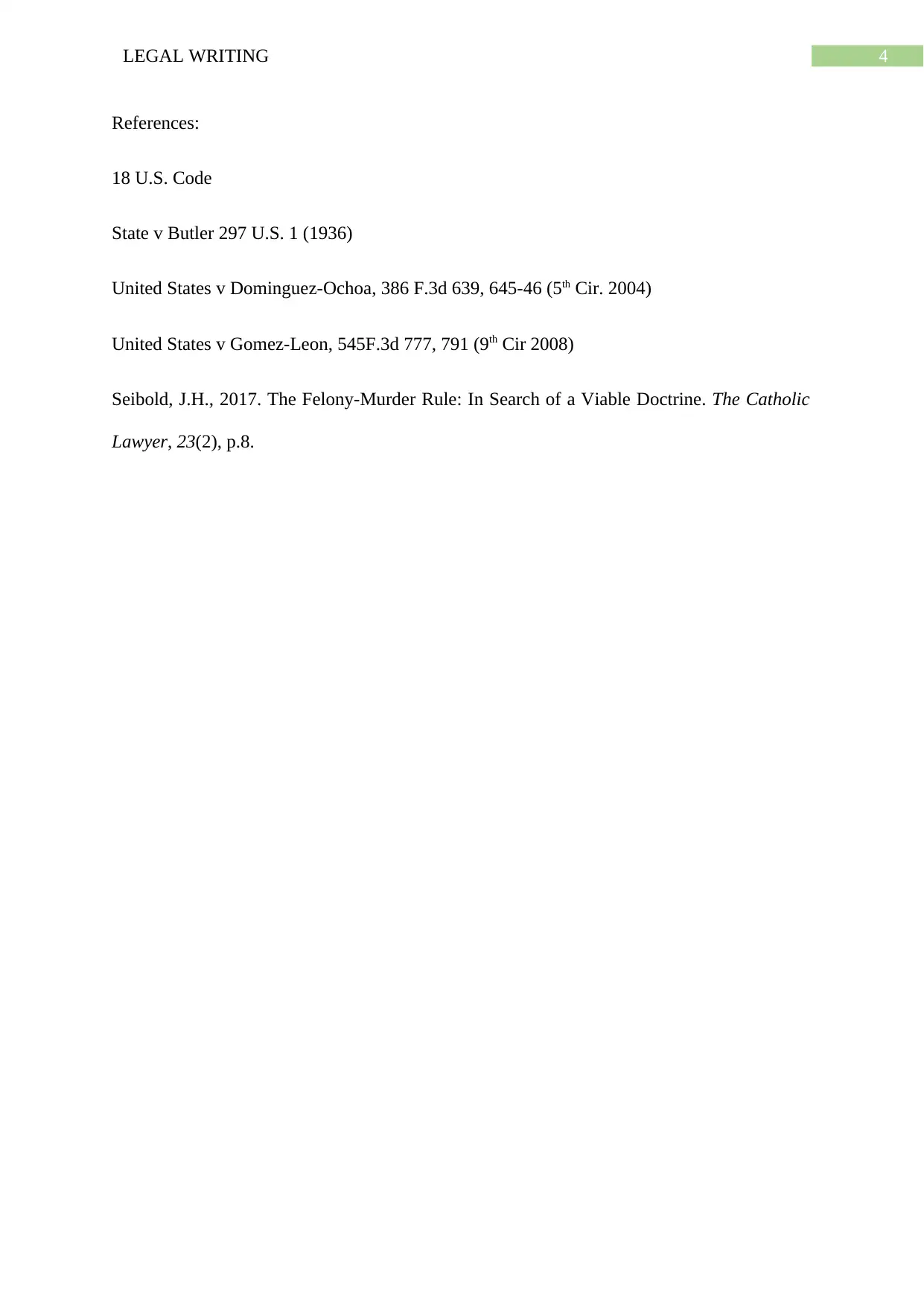






![[object Object]](/_next/static/media/star-bottom.7253800d.svg)